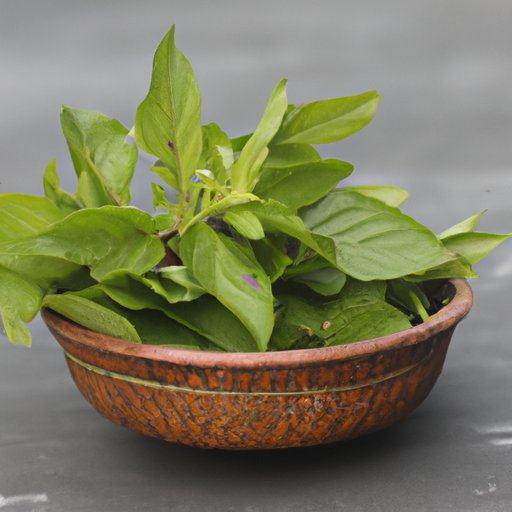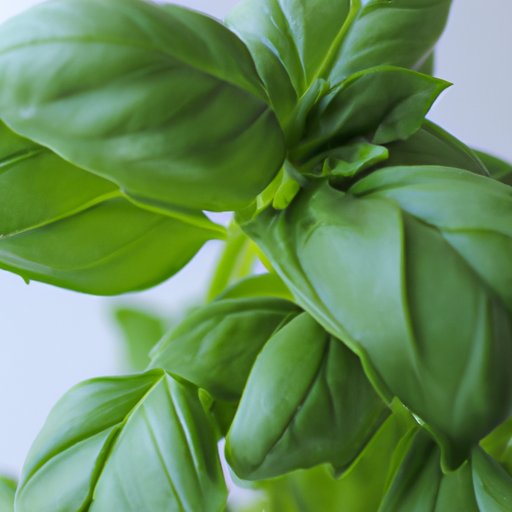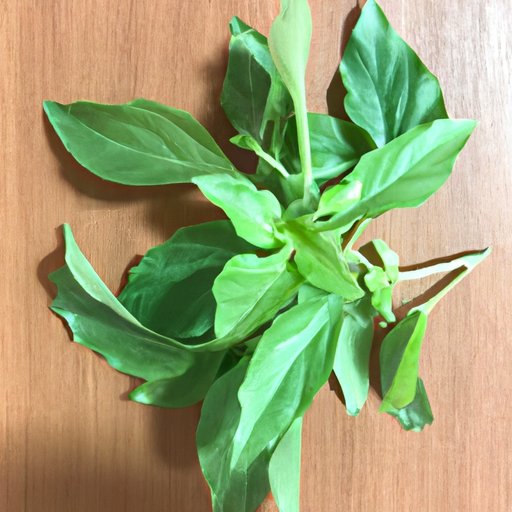Introduction
Basil is an aromatic herb that is native to tropical regions around the world. It has been used as a seasoning for centuries in many different cuisines and is now a popular ingredient in many dishes. Basil leaves are packed with vitamins, minerals, and other compounds that can provide numerous health benefits. But how many basil leaves should you eat per day?

Nutritional Benefits of Eating Basil Leaves
Basil leaves are an excellent source of vitamins and minerals, including vitamin A, vitamin C, calcium, magnesium, and iron. They also contain essential oils, such as eugenol and linalool, which have anti-inflammatory and antioxidant effects.
Basil also contains polyphenols, which are powerful antioxidants that help protect cells from damage caused by free radicals. These polyphenols may also help reduce inflammation and boost the immune system.
How Much Basil Should You Eat?
The recommended daily intake of fresh basil leaves is 1-2 tablespoons per day. You can also use dried basil, but it is not as potent as fresh basil and should only be used sparingly. If you’re using dried basil, it is best to start with 1 teaspoon per day and gradually increase the amount until you reach the desired flavor.
If you are taking medications or have any medical conditions, it is important to consult your doctor before adding basil to your diet. Some medications, such as blood thinners, may interact with basil, so it is important to check with your doctor first.
Is Eating Too Much Basil Unhealthy?
Eating too much basil can be unhealthy. Overconsumption of basil can cause digestive issues, such as diarrhea and stomach pain. Additionally, basil contains oxalates, which can increase the risk of kidney stones in some people. Therefore, it is important to talk to your doctor before adding large amounts of basil to your diet.

How to Incorporate Basil Into Your Diet
Fresh basil leaves can be added to salads, soups, and sandwiches. You can also make pesto by blending basil leaves with olive oil, garlic, and pine nuts. Basil can also be used to make tea, which is said to reduce inflammation and improve digestion.
You can also get creative with basil by adding it to recipes like scrambled eggs, pasta dishes, and even desserts. For example, you can make a basil-infused simple syrup for topping cakes and ice cream.
Health Benefits of Eating Basil Leaves Regularly
Regular consumption of basil leaves can provide numerous health benefits. The anti-inflammatory properties of basil may help reduce inflammation in the body, which can help reduce the risk of chronic diseases such as heart disease and diabetes.
The antioxidant effects of basil may also help protect cells from damage caused by free radicals. Studies have also shown that regular consumption of basil may help lower cholesterol levels, reduce blood sugar levels, and improve digestive health.
Conclusion
Basil leaves are packed with vitamins, minerals, and other compounds that can provide numerous health benefits. The recommended daily intake of fresh basil leaves is 1-2 tablespoons per day. Eating too much basil can lead to digestive issues and increase the risk of kidney stones in some people. Regular consumption of basil leaves may help reduce inflammation, improve digestion, and reduce the risk of chronic diseases.
(Note: Is this article not meeting your expectations? Do you have knowledge or insights to share? Unlock new opportunities and expand your reach by joining our authors team. Click Registration to join us and share your expertise with our readers.)
